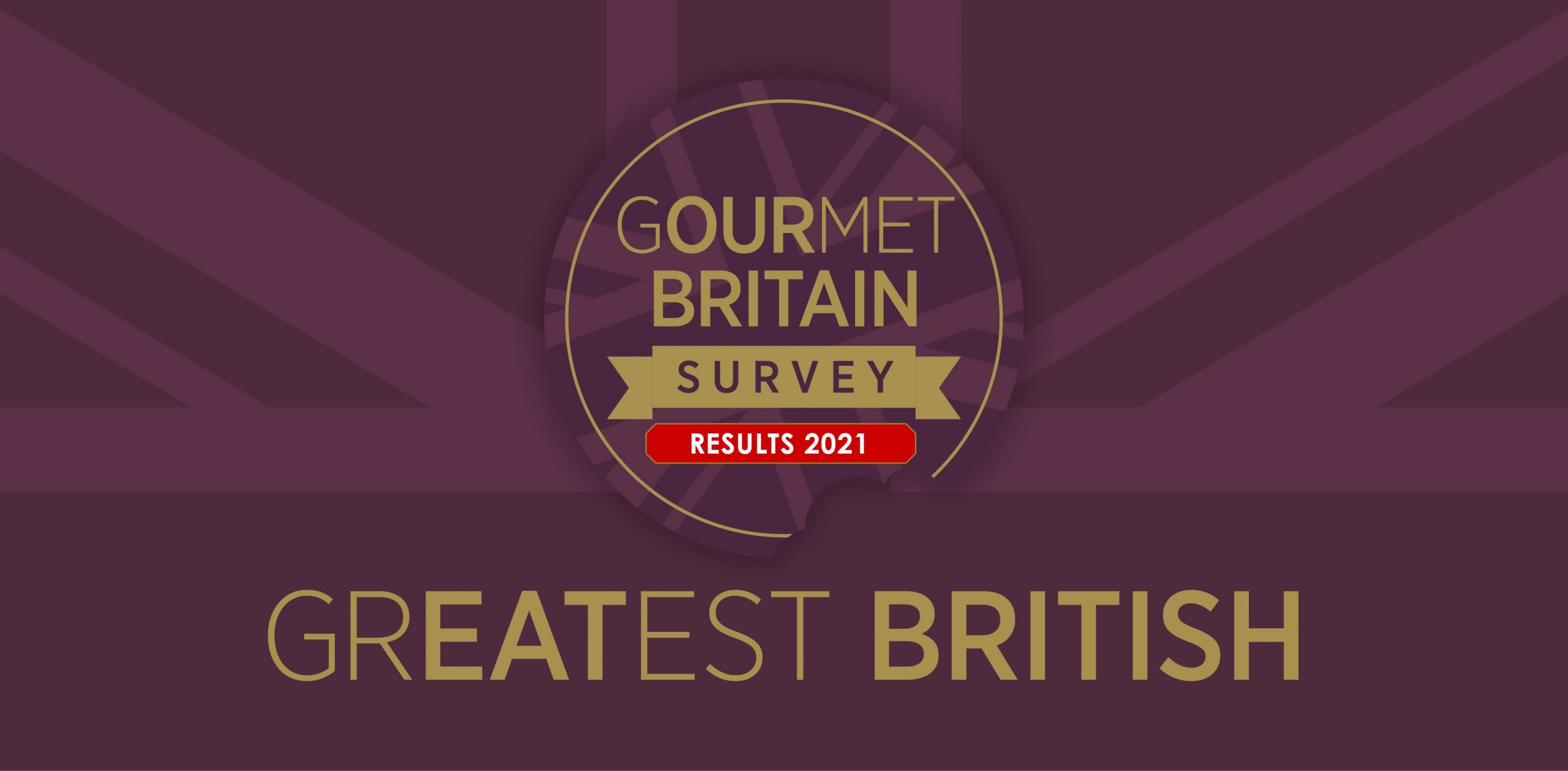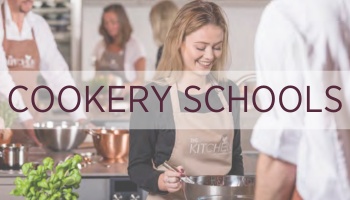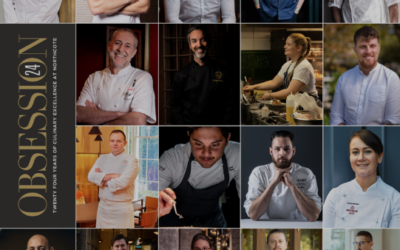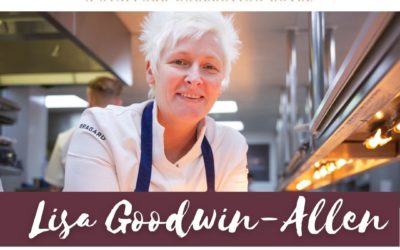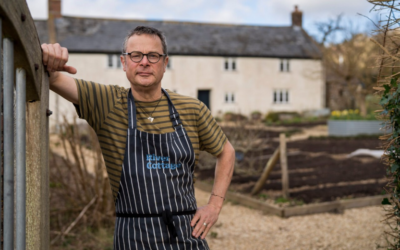ANNUAL GOURMET LIFESTYLE SURVEY RESULTS SUMMARY 2021
The Greatest British Company have announced the results of their annual Gourmet Britain Food & Lifestyle Survey, which asked over 1000 of its GourmetXperience.Club consumer members to share their plans and preferences around food produce, pubs, restaurants, hotels and cookery schools in the UK.
250 respondents from every age group took part, but by far the most active age group in UK hospitality is 45 to 65 and over, 70% of which were women compared to 30% of men.
This year’s survey was particularly important, as it gives us an indication of how dining and lifestyle trends have changed over recent years, and since restrictions were lifted. The data also reveals some interesting changes in consumer spending habits, as well as trends in cookery and dining in. The research is divided into Dining Out, Eating In, Home Cooking, Food Shopping and Holidays & Leisure; read on to discover more.
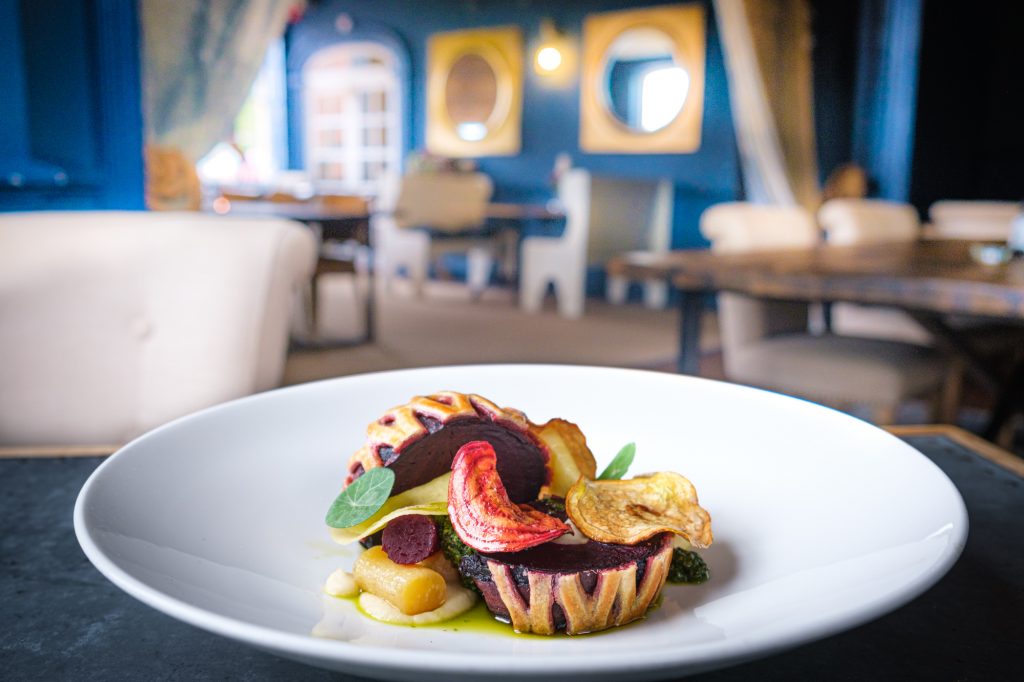
DINING OUT DESTINATIONS
DINING OUT
Pubs and restaurants have now been re-open for many months, and diners are flocking back. But how has the pandemic impacted on the frequency in which they dine out, and the amount they’re willing to spend?
Diners are eating out more often since pubs and restaurants reopened this summer
In last year’s survey, an overwhelming 70% of respondents said they wouldn’t be dining out more than once a month. This year’s results show a much more promising bounce-back since pubs and restaurants have returned to normality, with 50% dining out monthly, 21% dining out twice a month and 12% dining out several times a month. Just 3% of respondents said they didn’t dine out anymore.
The risk factor still presents a barrier to people dining out
Those that were still cautious about dining out cited several concerns, including not wanting to travel far and the weather, if eating outside. However, the two main barriers were social distancing and hygiene concerns (29%), and not wanting to put others at risk (21%). This suggests an ongoing need for continued reassurance from venues about the COVID safety measures in place.
Most respondents haven’t felt financially affected by the pandemic
59% of respondents reported no change to their income level since the first lockdown, while 24% said they were worse off and 17% said they were better off. Many people reported being able to save more money during the pandemic through working from home and reduced commuting costs.
People are still prepared to spend money on a good meal
In terms of cost, 31% of respondents would happily spend up to £99 on a three-course dinner for two with drinks at a pub or restaurant. 25% wouldn’t spend more than £74, while 16% would spend up to £149 and 10% would spend up to £49. Interestingly, 17% of respondents said they’d happily spend £150 or more on a meal out; a rise from just 8% of respondents in last year’s survey.
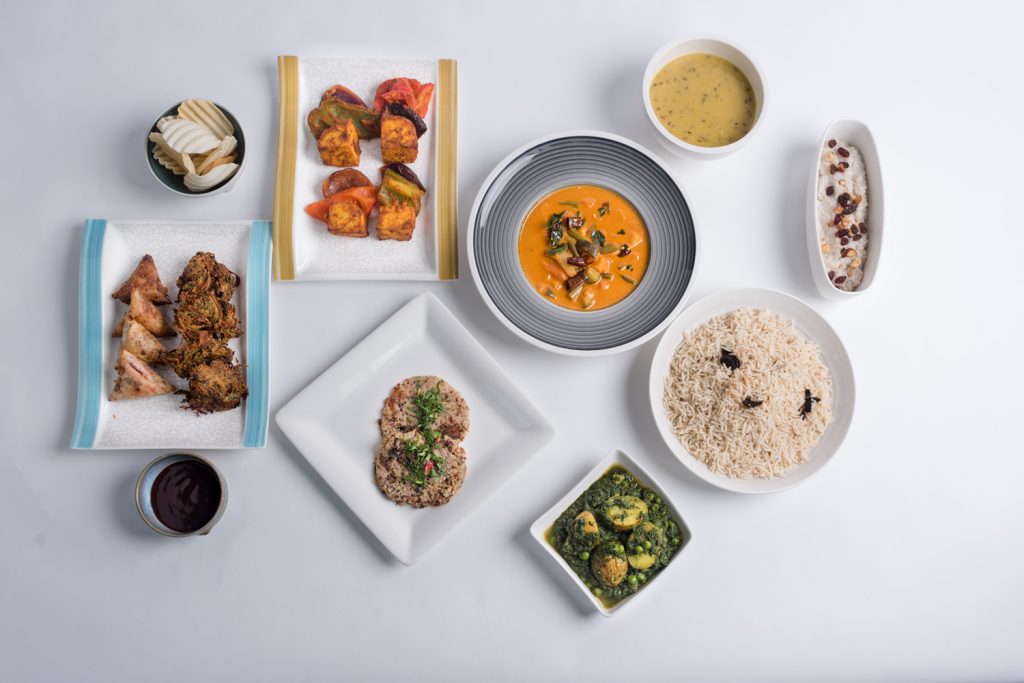
EATING IN TRENDS
EATING IN
Takeaways and At Home Meal Kits have soared in popularity still the early days of the pandemic, but is there still a market as pubs and restaurants get back to normality?
Takeaways were the preference during the pandemic, but Meal Kits had a moment
An overwhelming 73% of respondents reported buying takeaway meals from their local pub or restaurant during the pandemic, but the various lockdowns also inspired people to try new things. 28% purchased an At Home Meal Kit from one of their favourite restaurants, while a further 18% reported buying a Meal Kit from a celebrity chef. Food subscription boxes also became more popular, with 24% trying them during the pandemic.
At Home Meal Kits could be here to stay
When asked whether they were likely to purchase an At Home Meal Kit now that venues are open, 41% said they would prefer to visit the restaurant, while 32% reported no plans to purchase an At Home Meal Kit. However, 28% said they would be very likely to continue buying them, since it provided an opportunity to try new meals from different restaurants – some of which were too far to travel to.
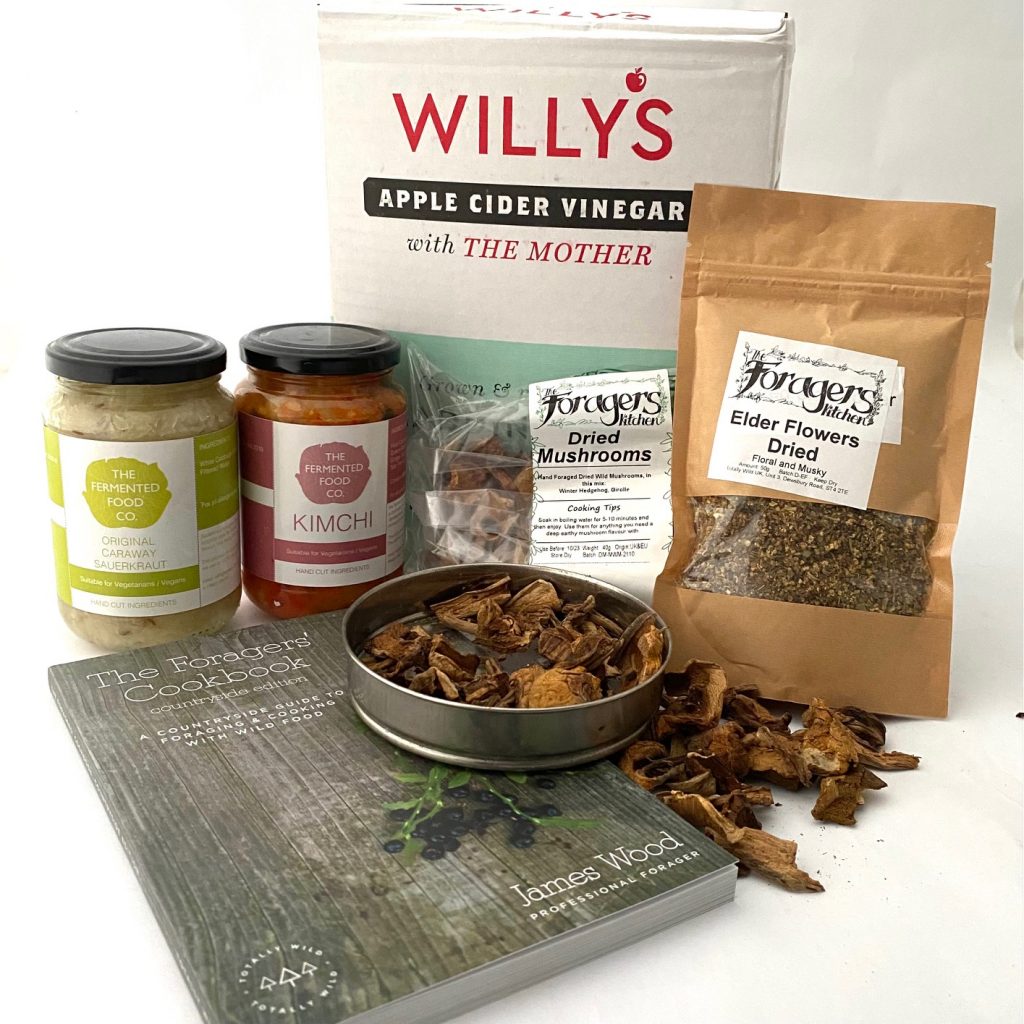
HOME COOKING
HOME COOKING
From focaccia to dalgona coffee and everything in between, people have been exploring new dishes throughout the pandemic, although many say their home cooking habits haven’t changed. How has this influenced the landscape of cookery schools, and what skills are people most interested in learning?
People’s home cooking habits didn’t change significantly in lockdown
While most people (68%) reported no change in their home cooking habits since the pandemic, 32% reported that lockdowns have inspired them to develop their cookery skills. 72% of people reported that the pandemic hasn’t had any impact on how likely they are to take up a cookery course, while 23% said they were now more likely to take one.
Proximity and affordability are the key influencers
When asked what influenced their choice of cookery course, 59% cited its proximity to their location, while 46% ranked affordability as a deciding factor. A further 30% said they preferred courses with small groups, and 23% sought out schools with professional teaching standards. This tallies closely with last year’s survey results, showing that proximity and affordability continue to remain the driving factors.
People are prepared to spend more on a cookery course
In terms of how much they’d spend on taking a cookery course, most respondents (24%) said £75 to £99, followed by £50 to £75 (23%) and £25 to £49 (21%). This marks a different trend from last year’s survey, when most people (27%) said they would not spend more than £49. 18% also said they’d spend up to £149 on a course, while 14% would be prepared to spend more, reflecting a greater willingness to invest more on the right cookery course.
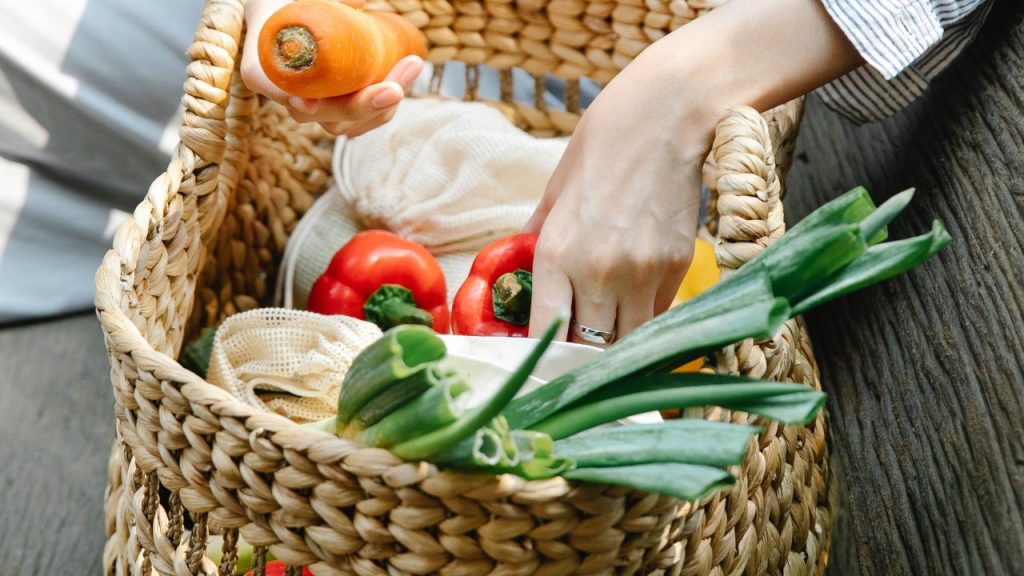
FOOD SHOPPING TRENDS
FOOD SHOPPING
Have issues like Brexit, COVID and the recent supply chain challenges changed where people do their weekly food shop, or are supermarkets still first choice?
Buying locally produced food is still important to people
When asked about their current food shopping habits and the considerations that mattered most to them, 35% said buying food produced in Britain was most important. A further 33% said they sought out food that was produced locally, while the remaining 29% said they’d buy the items they liked, wherever in the world they were produced. Interestingly, this figure appears to have declined from 54% buying British in last year’s survey, and 77% buying British in the year before. Though this may account for a strong awareness of British produce, and the assumption that local food, produced locally, is British!
Supermarkets still rule, but local independents are a close second
While 47% said they mainly shopped at supermarkets, a growing number (34%) prefer to do all their food shopping in their local independent store, grocer or specialist. Just 16% of respondents do their weekly food shop online. Interestingly, many respondents reported splitting their food shop between supermarkets (such as Waitrose and Sainsbury’s) and local specialists (for items like meat, game and seafood).

HOLIDAYS AND LEISURE
HOLIDAYS AND LEISURE
This summer was the year of staycations, with Cornwall and Wales fully booked until the early autumn months. Now that most of the world has opened back up, are staycations here to ‘stay’ or will overseas travel reign again?
People still prefer staycations over travel – only just!
When asked about their holiday plans over the next 12 months, 31% are planning to stay in the UK. Coming in at an extremely close second, however, 30% say they plan to holiday in Europe – restrictions permitting. Fewer people (18%) are planning to travel further beyond Europe, while 21% said they have no holiday plans.
Devon, Cornwall and Dorset are still top choices for a UK break
Exactly as our results showed last year, most people (59%) choose the South West (Devon, Cornwall and Dorset) for their UK break. While last year’s survey showed Wales as the second most popular choice, this year it’s been slightly overtaken by Scotland (41%) and is now third choice with 39%.
People are willing to spend slightly more on an overnight UK break
41% of respondents said they’d spend between £126 and £199 on an overnight break for two with breakfast. 24% would spend up to £299, while a further 24% would not spend more than £125. Just 7% said they’d be willing to spend between £300 and £450, while 4% would be prepared to spend more than that. While the most popular price point tallies with last year’s survey, far more people (24%) are willing to spend up to £299 compared to last year’s 13%.
Location and price are still the main considerations in leisure breaks
In a multiple-choice question where respondents were asked what they look for in a UK hotel break, 84% cited the location, while 56% cited the price; both in common with last year’s top choices. 36% preferred a peaceful, rural location, 28% based their choice on review websites and 21% cited facilities such as a golf course, spa or gym. Among the lesser considerations were added extras (8%), hospitality or dining awards (11%) and a bustling, urban location (10%).
SUMMARY
- Dining Out | Most people have increased the frequency in which they dine out, with the majority eating out at least once a month. £99 is the maximum they’re willing to spend on a three-course dinner for two with drinks, but some are still cautious about social distancing.
- Eating In | People would rather visit pubs and restaurants in person now that they’ve reopened, but almost a third of respondents still plan to purchase At Home Meal Kits as a way of sampling the food at restaurants around the UK.
- Home Cooking | A third of respondents have learned to cook or create new dishes during the various lockdowns and are interested in developing their skills further. World Cuisine is the most interesting topic to would-be cookery school students, followed by Fish & Seafood.
- Food Shopping | While most still do their weekly food shop at a supermarket, a growing number are either doing their entire shop at a local independent store, or combining a supermarket shop with buying specialist produce like game and fish from local suppliers.
- Holidays & Leisure | More people are planning European holidays now that restrictions have lifted, but of those choosing a staycation, the South West, Scotland and Wales are the most popular choices. Location and price are the key influencing factors in choosing a venue, but people are now willing to spend slightly more on an overnight break in the UK.
Comparison: Gourmet Britain Survey 2020 analysis results
In-depth survey results and analysis?
All findings (c) Gourmet Britain Survey 2021 by GreatestBritish.org
Carried out between September 1st and October 24th 2021, sent to over 1,000 GourmetXperience.club member recipents.
Respondents were average age 45-65. 65% female. UK wide.
SHOP FOR GOURMET GIFTS AND EXPERIENCES INSPIRED BY OUR RESEARCH RESULTS HERE

